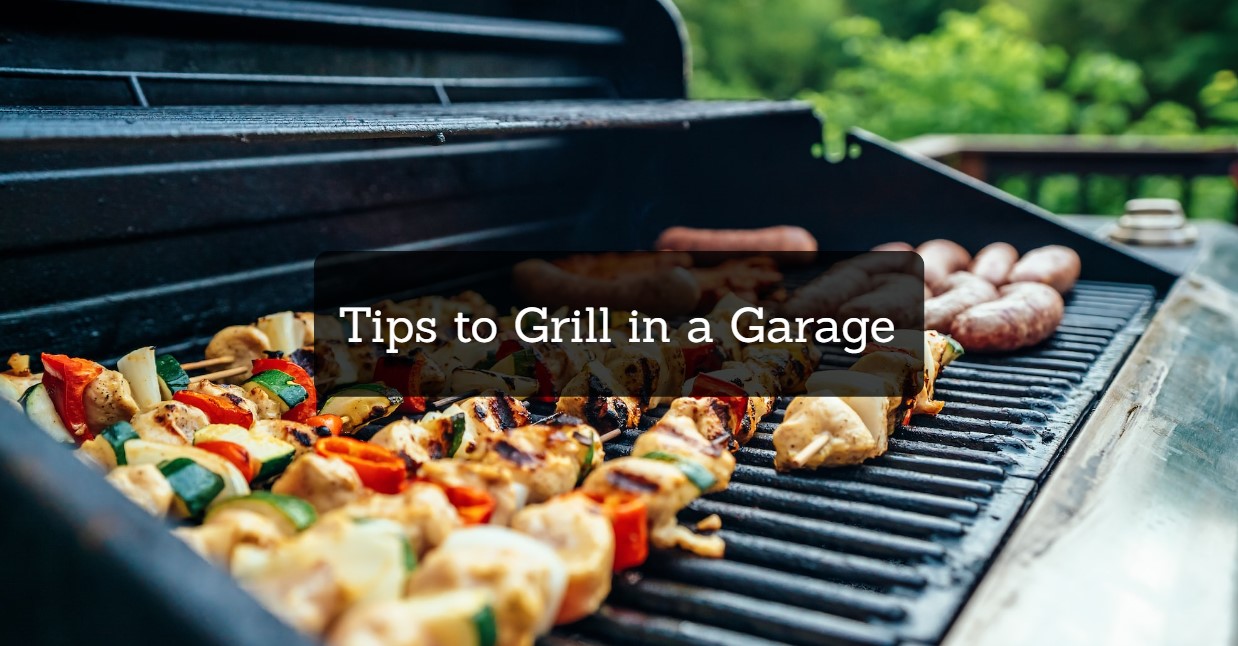Ah, the allure of grilling. Juicy steaks, smoky veggies, laughter filling the air – what’s not to love? But what if your outdoor space is limited, or summer rains put a damper on your barbecue dreams? Enter the garage: a potential grilling haven, shrouded in a hazy aura of “is it even legal?” Fear not, grill masters!
This is your guide to unlocking the hidden potential of your garage. So Garage Activity Ideas are sure to appeal to you. Buckle up, garage lovers, because it’s time to turn your dusty sanctuary into a haven of endless possibilities! Now, let’s get to the safety:
1. Location, Location, Location
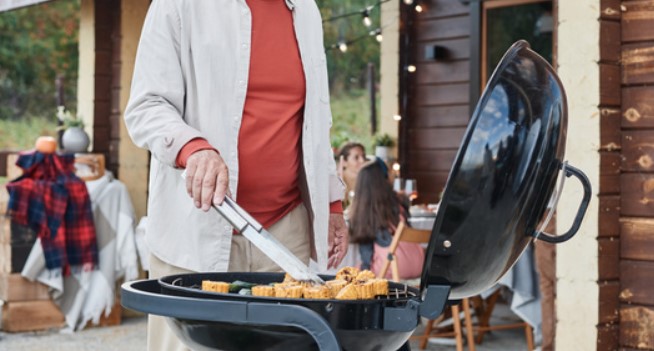
Imagine your grill as a charismatic, but slightly fiery friend. You wouldn’t invite them to crash on your neighbor’s inflatable pool, right? Treat flammable materials the same way! Keep your grill at least 10 feet away from:
- Walls and Siding: Brick, wood, vinyl – heat radiates, and close proximity to your house or garage is an invitation for disaster.
- Deck Railings and Overhangs: Dry wood and scorching flames don’t mix. Give your deck (and your peace of mind) some breathing room.
- Trees and Bushes: Don’t turn your backyard into a mini-forest fire. Keep leafy friends a safe distance from the grilling action.
- Flammable Liquids: Gasoline cans, paint thinners, even citronella candles – treat them like the VIPs they are and give them their own, well-ventilated corner, far away from your fiery friend.
- Enthusiastic Pyromaniacs (aka, Toddlers): Curiosity may kill the cat, but fire can leave everyone worse for wear. Keep a watchful eye on little ones and designate a “kid-free zone” around the grill.
You may also like: Best Portable Air Compressors
2. Fueling Up
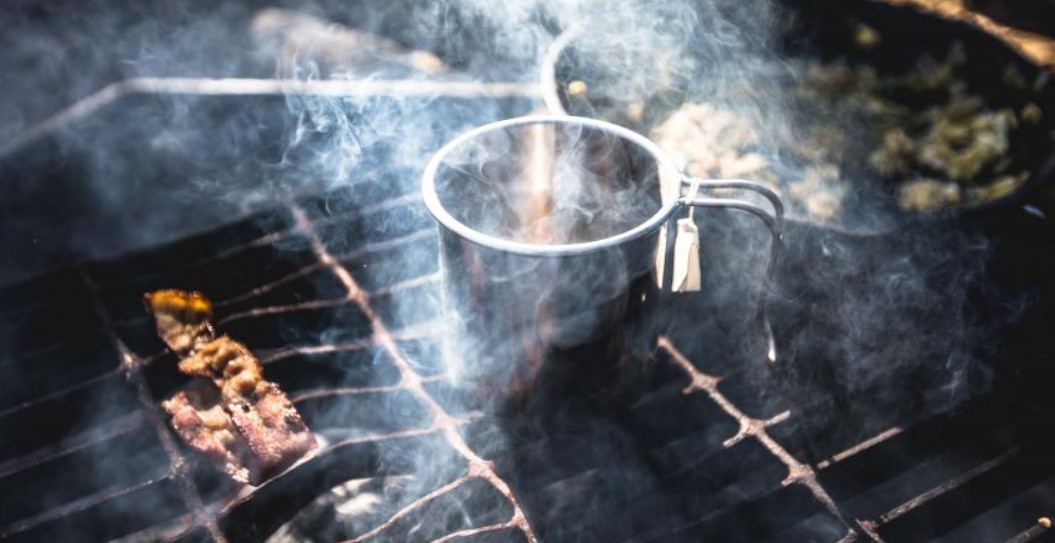
Gas grills need extra caution. Store propane tanks outside the garage and only connect them when grilling. Opt for electric grills if gas makes you nervous.
- Safety First: Gas grills offer a classic grilling experience, but they require extra caution due to the use of propane.
- Store Smart: Always store propane tanks outside the garage, in a well-ventilated area away from direct sunlight and heat sources. Only connect the tank to the grill when you’re ready to cook. Disconnect and store it properly after each use.
- Leak Check: Regularly check for leaks before and during grilling. Use a soapy water solution on the hose connections and valve. Look for bubbles, indicating a potential leak.
- Grill Wise: Never leave a lit gas grill unattended. Keep children and pets at a safe distance while grilling. Turn off the propane valve and gas supply at the grill before turning off the burners.
Electric Grills:
- Plug and Play: Electric grills offer a convenient and worry-free alternative to gas. Simply plug them into a standard outlet and you’re good to go. No need for propane tanks or concerns about leaks.
- Consistent Heat: Electric grills provide consistent and even heat, making them ideal for delicate foods like fish and vegetables. They’re also easier to control and maintain temperature than gas grills.
- Cleaner Cooking: Electric grills produce less smoke and fumes compared to gas, making them a good choice for enclosed spaces or environmentally conscious grillers.
Ultimately, the best grill for you depends on your individual needs and preferences. If you’re comfortable with gas and enjoy the classic grilling experience, a gas grill might be the perfect fit. But if you prioritize safety, convenience, and clean cooking, an electric grill could be a great option.
You may also like: Quietest Garage Fans
3. Cleanliness is King (and Queen)
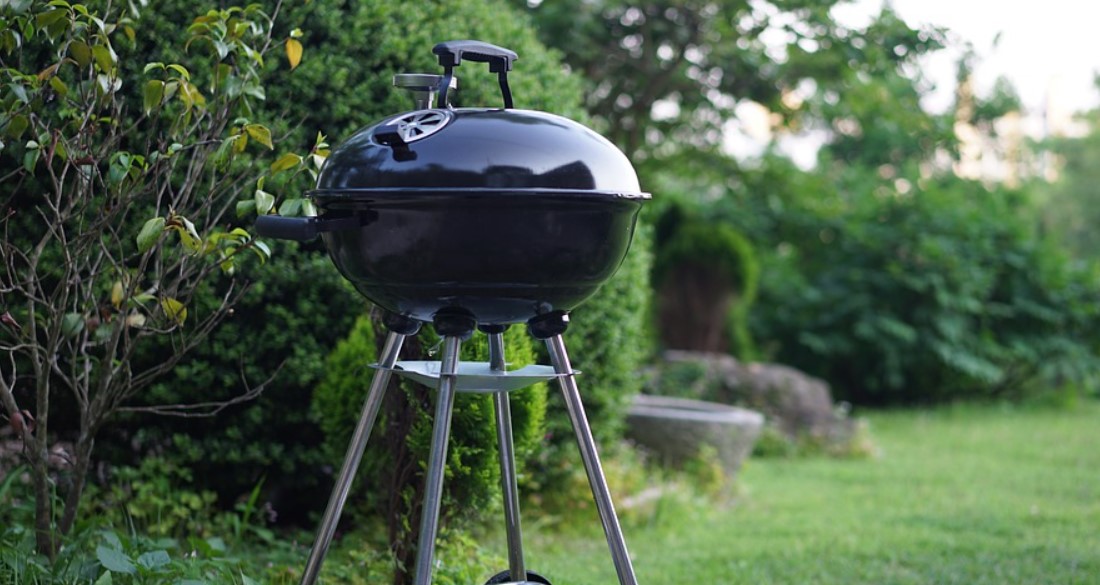
Grease buildup is the nemesis of every grill master, lurking in the shadows, waiting to pounce and turn your cookout into a fiery fiasco. But fear not, valiant grill warriors! With the mighty tools of regular cleaning and proper maintenance, you can vanquish the grease monster and keep your grill safe and sizzling.
Here’s your battle plan:
- Scrape those Grates: After each grilling adventure, while the grates are still warm, grab your trusty grill brush (a sturdy metal one is your best bet) and scrape away any food residue. Imagine you’re sculpting a masterpiece, except instead of marble, you’re wielding your brush against the charred remnants of burgers and veggies.
- Empty the Drip Pan: This unsung hero silently collects the grease that drips from your culinary creations. Don’t let it overflow and become a grease geyser! Empty and clean the drip pan regularly, using soapy water and a sponge to banish any lingering grease goblins.
- Scrub-a-Dub-Dub: Once the grates and drip pan are grease-free, it’s time for a full-on scrub down. Use a soapy water solution and a sponge or grill brush to tackle any stubborn grime on the grill body, knobs, and other surfaces. Remember, a clean grill is a happy grill (and a safe one!).
4. Fire Extinguisher at the Ready
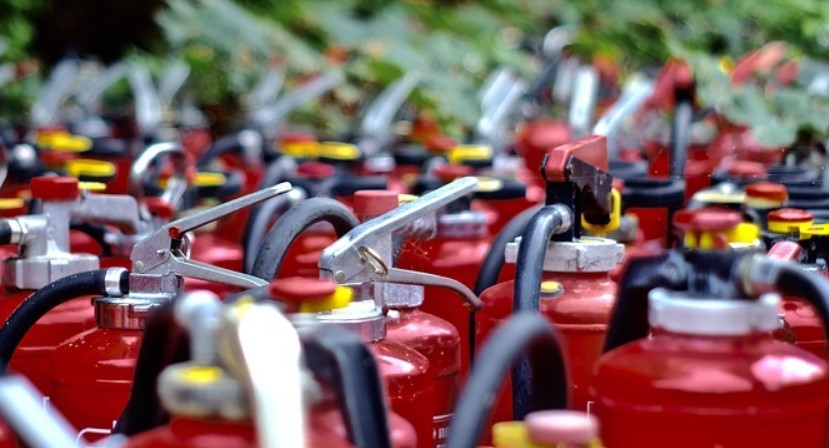
Imagine this: you’re flipping burgers, the sun’s setting, and the air is filled with the delicious aroma of grilled goodness. Suddenly, a rogue ember jumps the grate, landing on a patch of dry grass. It’s in these moments that your trusty fire extinguisher becomes your grill’s ultimate sidekick, ready to snuff out any fiery drama before it turns into a full-blown disaster.
Here’s why having a fire extinguisher is non-negotiable:
- Speed is Crucial: Fires can grow rapidly, and every second counts in an emergency. Having an extinguisher within arm’s reach means you can act fast and contain the flames before they get out of control.
- Know Your Weapon: Choose the right type of extinguisher for your grill. Most multi-purpose (ABC) extinguishers are effective for common grilling hazards like grease and wood fires. Familiarize yourself with how to use it, so you’re not reading the instructions when flames are licking at your heels.
- Location, Location, Location: Place your extinguisher strategically, not tucked away in a dusty corner of the garage. Mount it near your grill, but not directly above it, where heat and grease could damage it. Remember, easy access is key.
- Practice Makes Perfect: Don’t wait for a real fire to learn how to use your extinguisher. Familiarize yourself with the PASS technique (Pull the pin, Aim at the base, Squeeze the lever, Sweep) and practice on a controlled fire (like a small pile of leaves) in a safe outdoor area.
You may also like: Best Beverage Coolers
5. Let it Cool Down
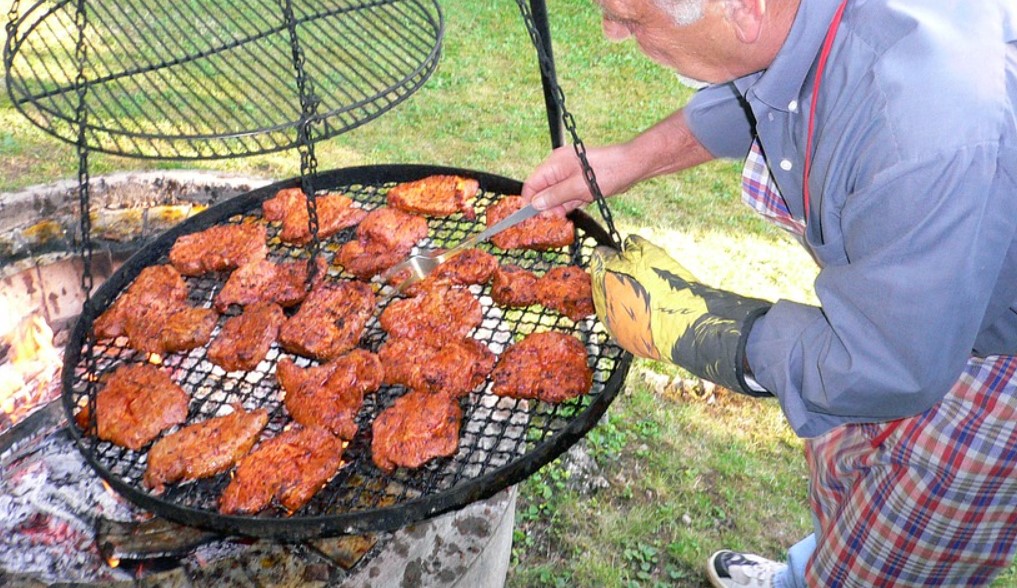
Grilling season might be over, but that doesn’t mean your trusty BBQ has to hibernate all winter! With a little prep and care, you can safely store your grill in the garage until the next warm weather wave. But remember, just like you wouldn’t send your sweaty self straight to bed after a workout, your grill needs to cool down before hitting the garage.
Why the Cool Down?
Think of your grill like a fiery dragon just finished breathing flames. It’s hot, volatile, and not exactly ready for a cozy nap in your enclosed space. Storing a hot grill in the garage is a safety hazard for several reasons:
- Fire Risk: Residual heat can ignite flammable materials like cardboard boxes, paint cans, or even dry leaves. Remember, garages are often packed with potential fuel sources.
- Carbon Monoxide: Burning charcoal or gas can release carbon monoxide, a deadly colorless and odorless gas. Even a seemingly “cooled down” grill can still emit enough CO to be dangerous in a confined space like a garage.
- Warped Grates and Surfaces: Extreme temperature changes can damage your grill’s delicate components, leading to warped grates, cracked enamel, and malfunctioning knobs.
6. Mind the Smoke & Noise
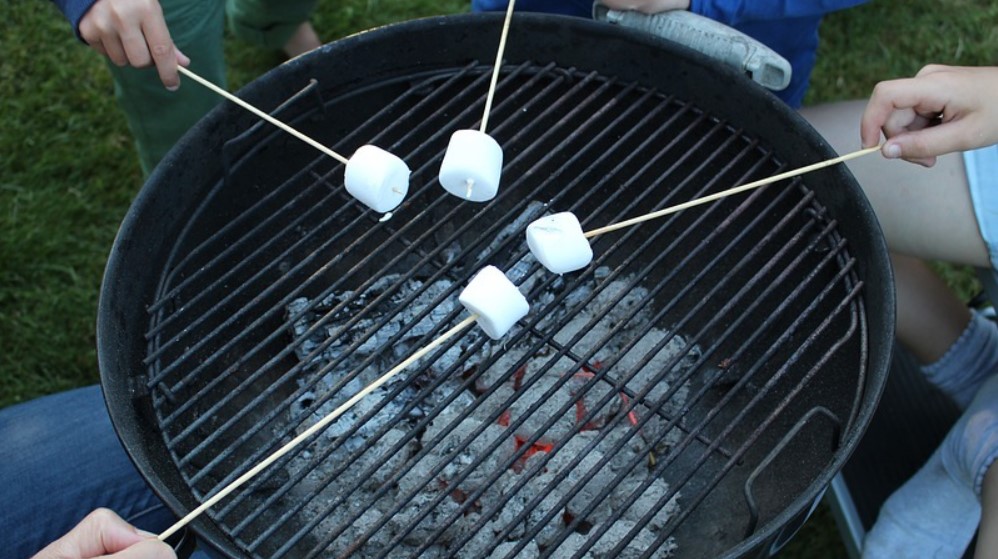
Grilling is a fantastic way to create delicious memories with friends and family. But in the close confines of a neighborhood, it’s important to be mindful of your impact on others. Here’s how to ensure your grilling sessions are a symphony of sizzling flavors, not a cacophony of complaints:
Respecting the Night:
- Curb the Late-Night Sizzle: While a sunset cookout is idyllic, avoid firing up the grill after dark when most neighbors are winding down. Stick to reasonable grilling hours, ideally ending before 10 pm.
- Lighten Up the Noise: Loud music and boisterous laughter can quickly travel through the air. Keep the volume down, especially after sunset, and encourage your guests to be mindful of their noise levels.
You may also like: Great Garage Birtday Party Ideas
7. Light it Right
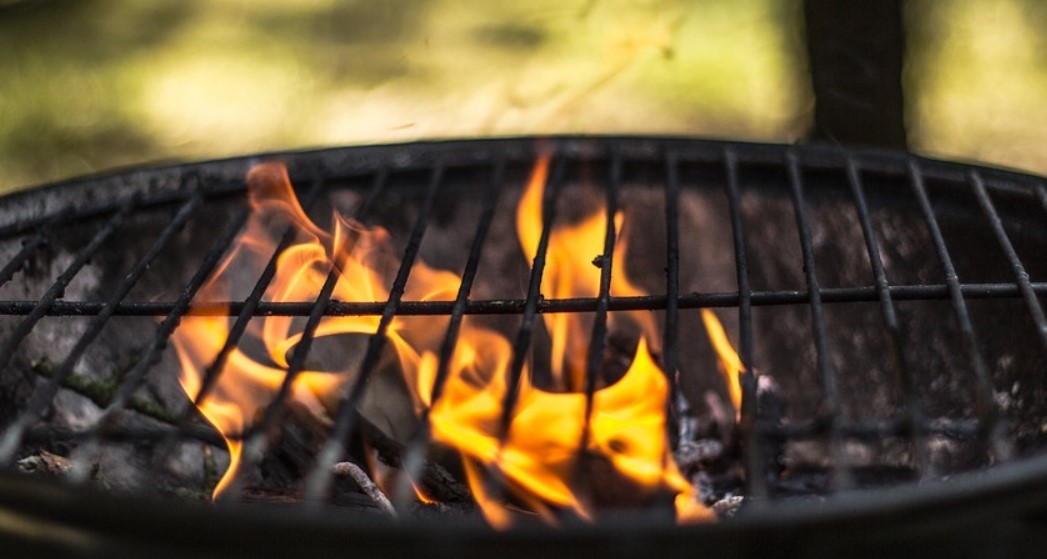
Lighting a grill might seem like a simple, even primal act. But the choice of your ignition tool can make a world of difference, not just in terms of convenience, but also safety. So, let’s leave the flammable liquid theatrics for Hollywood blockbusters and embrace safer, less dramatic approaches to lighting your grill:
Say No to the Flashy Flames:
- Ditch the Danger: Flammable liquids like lighter fluid or gasoline may seem like a quick and easy way to get your grill going, but they are incredibly dangerous. These liquids can easily ignite prematurely, causing flash fires and burns. They also introduce unwanted chemicals into your food, tainting the flavor and potentially posing health risks.
- Fueling Fears: Leaky containers or spills can create fire hazards, while leftover fumes can linger and ignite unexpectedly. Plus, improper storage of these liquids can be a safety hazard in its own right.
8. Never Leave it Unattended
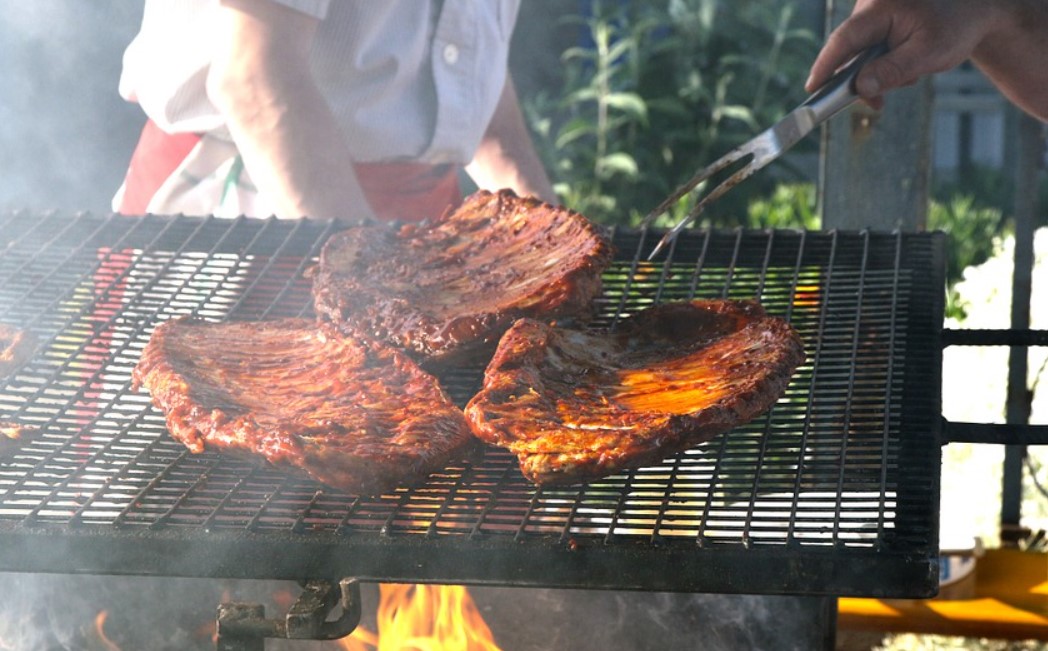
Imagine this: you’re flipping burgers, checking your phone, tending to the kids, and catching up with the neighbor – all while flames dance on your grill. This multitasking might seem impressive, but in the fiery world of grilling, it’s a recipe for disaster. Here’s why:
- Eyes on the Prize: Grilling requires constant attention. Flare-ups can happen in an instant, and turning your back for just a few seconds can lead to scorched food, uncontrolled flames, and even property damage.
- Charcoal’s Fickle Nature: Charcoal fires are not static. They need regular poking, prodding, and adjustments to maintain the desired heat. Neglecting your charcoal grill can lead to uneven cooking, hot spots, and even extinguished coals, putting your entire cookout on hold.
- Open Flame: A Force to Respect: Never underestimate the power of open flames. A stray spark can easily ignite nearby objects, and a sudden gust of wind can send embers flying. Stay focused and vigilant to keep the flames confined to where they belong – your grill.
9. Keep it Grounded
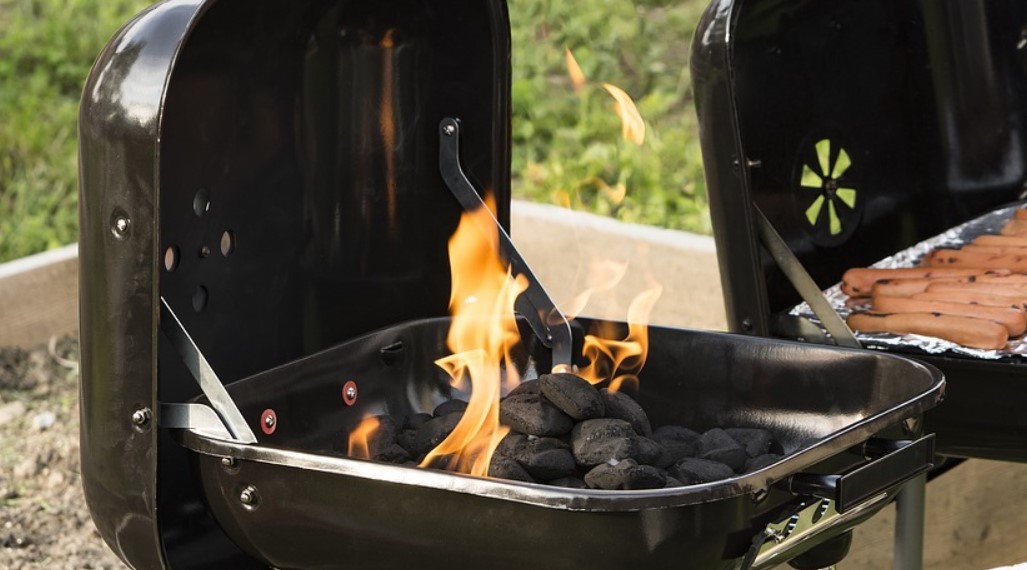
Picture this: you’re flipping a juicy burger, feeling the summer breeze, and bam! Your grill tips over, sending a fiery symphony of charcoal, spatulas, and – you guessed it – that perfectly crafted burger into the abyss. Don’t let a wobbly grill turn your BBQ bliss into a backyard disaster. Remember, stability is key!
Level Up Your Grilling Game:
- Uneven Terrain? No Problem: Grills aren’t mountain goats; they need solid ground. Check your grilling surface for any dips or bumps. If necessary, use leveling blocks or shims to create a stable platform.
- Four Legs Good, Three Legs Bad: Make sure your grill is firmly on all four legs or wheels. Wobbly wobblers are a safety hazard waiting to happen. Give your grill a quick shake test before firing it up.
- Size Matters: Don’t overload your grill. Grills have weight limits for a reason. Exceeding that limit can make it top-heavy and prone to tipping. Remember, bigger burgers don’t always mean happier grills.
You may also like: Best Garage Heaters
Legal Lowdown: Garage Grilling, Legal or Liability?
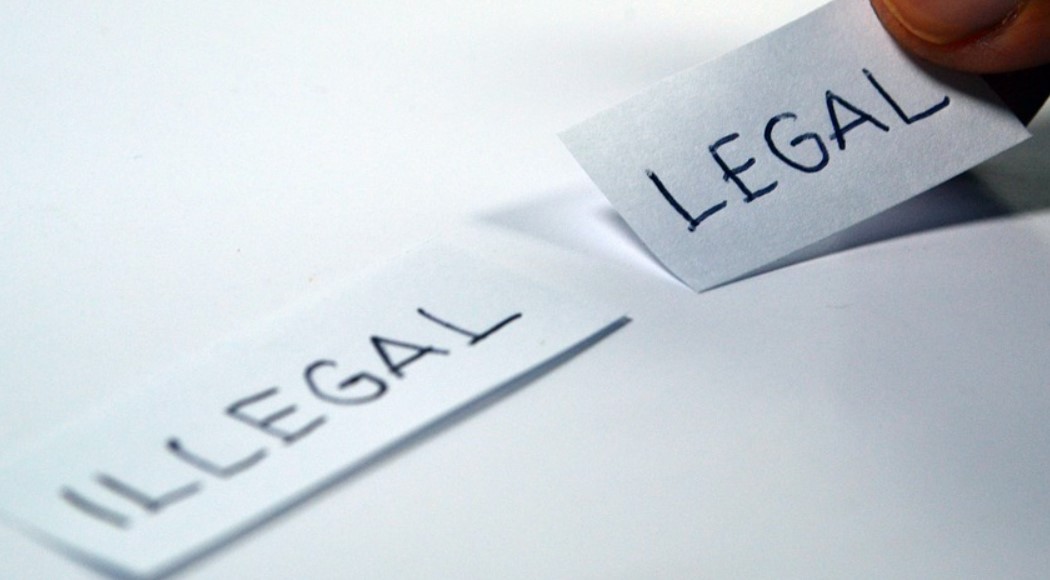
The sizzle of grilling in the comfort of your garage seems like a summer dream come true. But before you light the coals, dive into the legal landscape, which can be as smoky as a poorly ventilated BBQ.
Good News: In most places, grilling in your garage is perfectly legal, as long as you prioritize safety. Here’s why:
- Fire Codes: These regulate construction materials, safety equipment, and clearances for grills in enclosed spaces. While specifics vary, most codes allow grilling in garages with proper precautions like ventilation, distance from flammables, and fire extinguisher access.
- Permits & Inspections: Some municipalities require permits for permanent fixtures like built-in grills or gas lines installed in garages. Check your local regulations to avoid grilling surprises.
- Homeowner’s Associations: If you live in a community with an HOA, their rules often supersede local laws. Review your HOA guidelines to ensure your garage grilling plans comply.
Remember: Even if grilling is “legal”, it doesn’t mean it’s risk-free. Before firing up:
- Always: Consult your local fire department for specific regulations and safety recommendations.
- Double-check: Review your homeowner’s association rules if applicable.
- Inspect: Ensure your garage meets the minimum safety requirements outlined in your fire code.
- Invest: In proper ventilation, carbon monoxide detectors, and fire extinguishers for added peace of mind.

